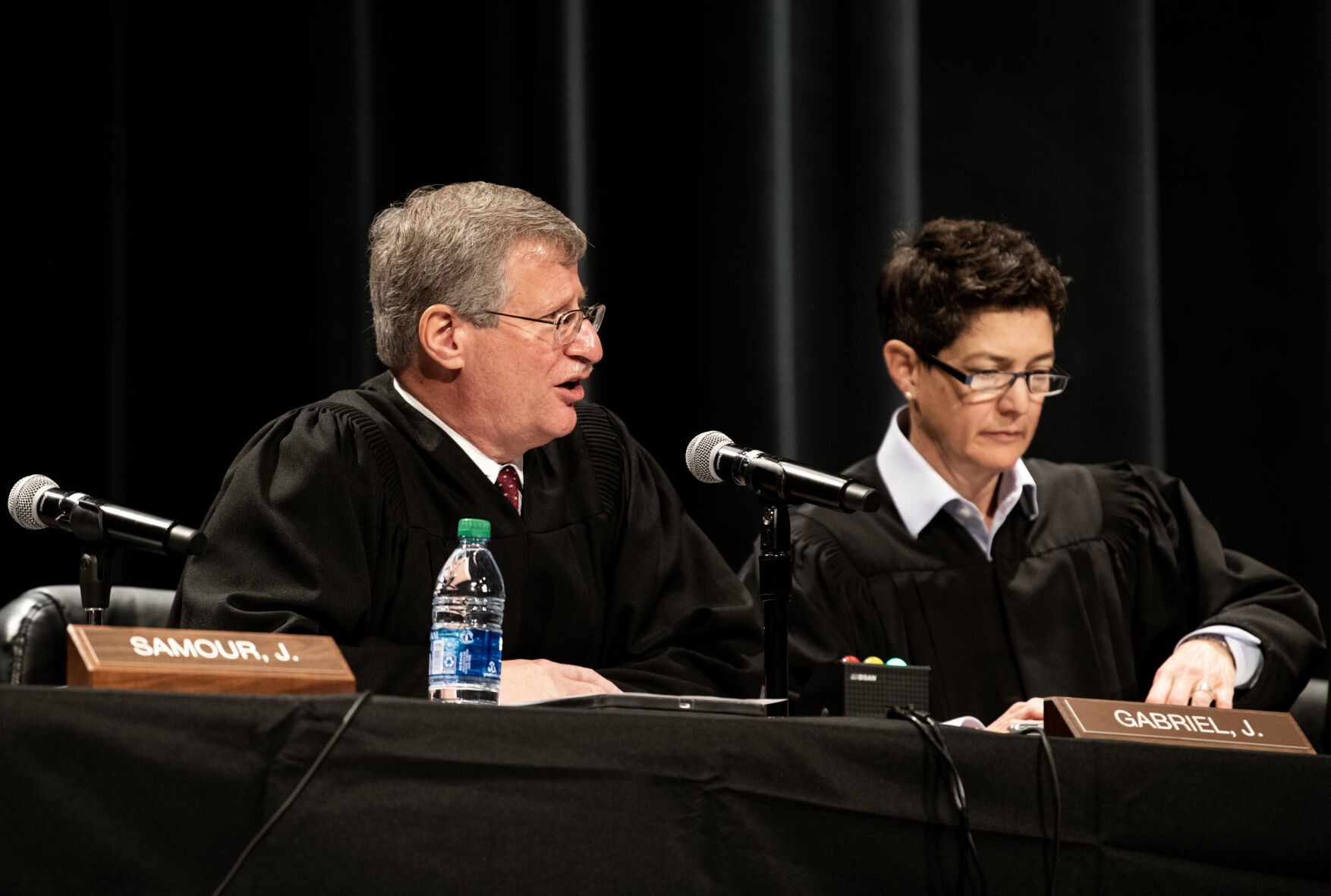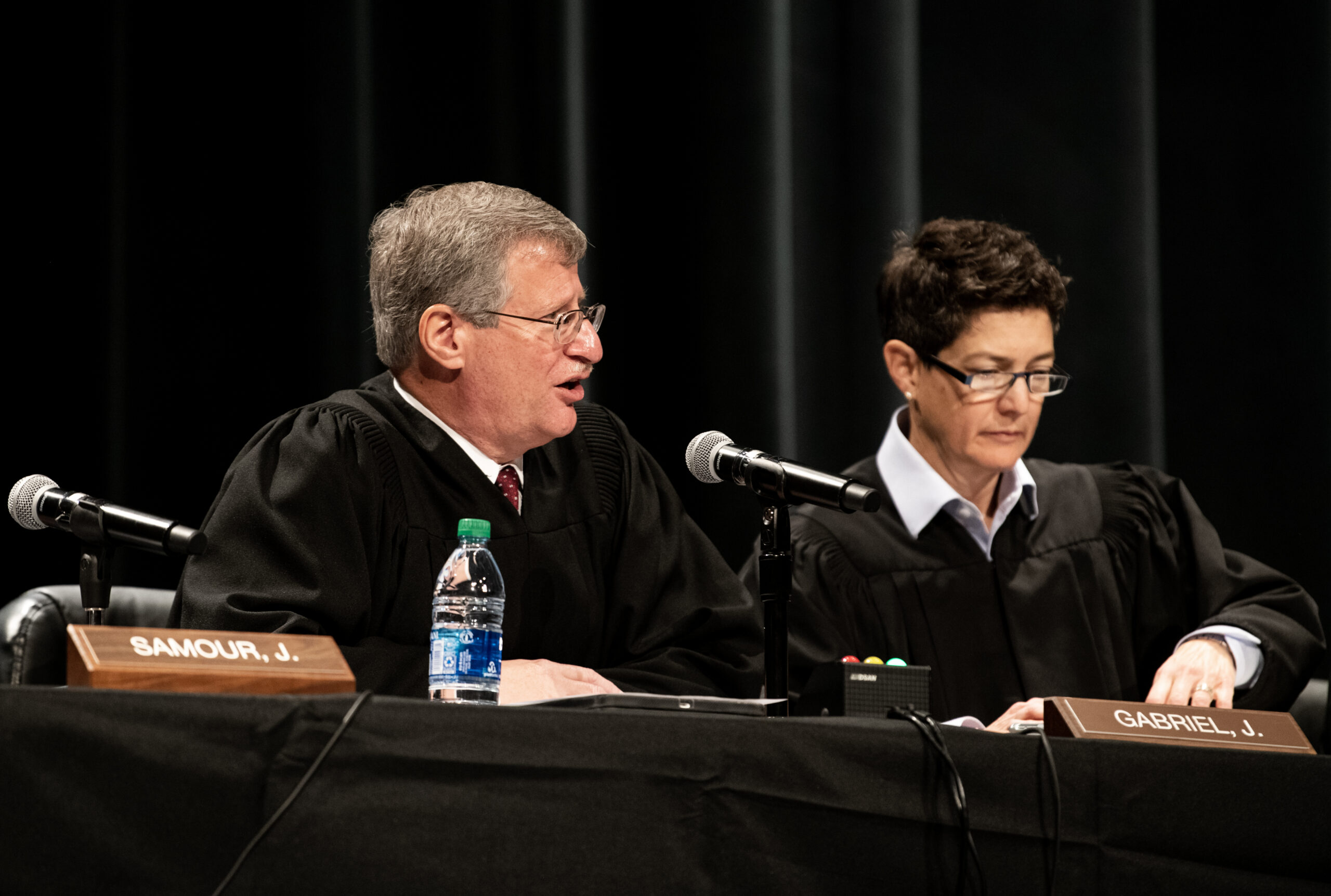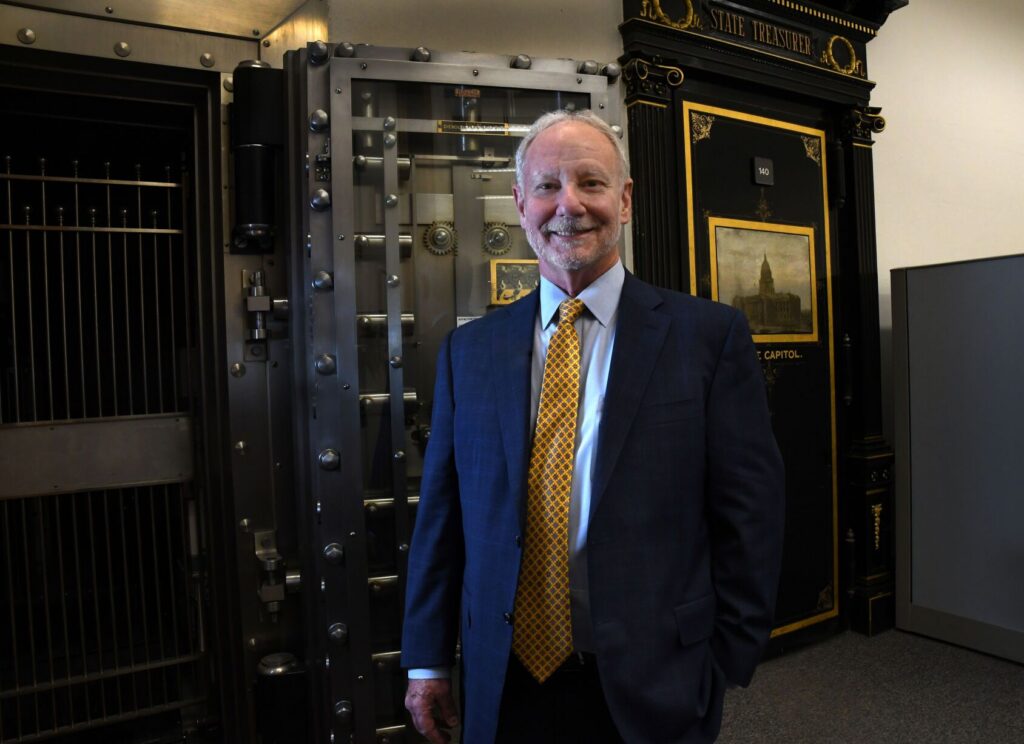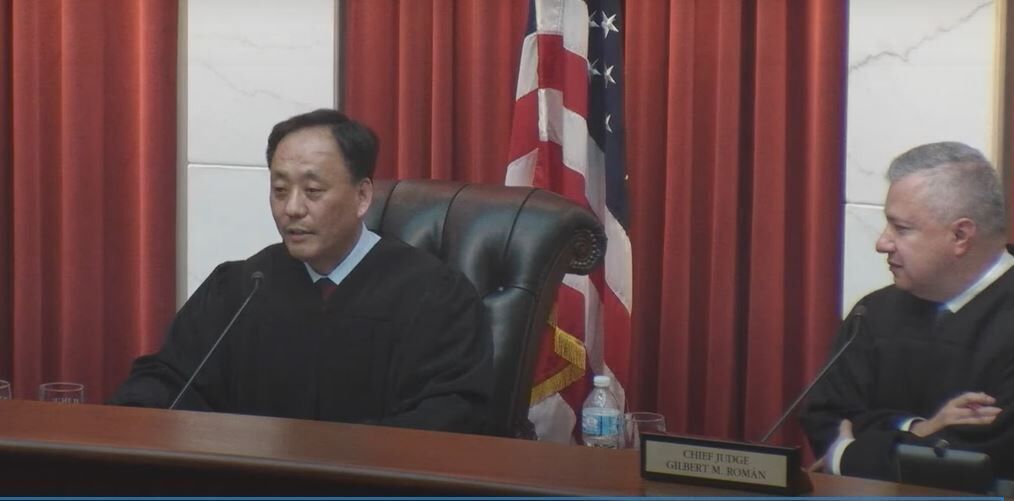Colorado justices spar over need for new trial due to biased judge

When public defender Amanda C. Hopkins appeared in Saguache County District Court on April 17, 2018, her client failed to show up. The hearing was over in a matter of minutes. Records at the time did not document her brief substitution for the regular public defender assigned to the case.
Three months later, Hopkins became a judge on that same court. She eventually presided over the trial of Donald L. Garcia, who a jury convicted of aggravated motor vehicle theft.
But two years ago, the state’s Court of Appeals reversed Garcia’s conviction. Neither the defense, the prosecution nor Hopkins apparently realized before trial that she briefly was Garcia’s lawyer during the April 2018 hearing. The appellate court observed state law forbids judges from handling criminal cases where they served as counsel, deeming them biased.
On Tuesday, the Colorado Supreme Court heard the prosecution’s appeal, with members voicing strong opinions on both sides.
The Colorado Attorney General’s Office, believing Garcia’s trial lawyers likely knew about Hopkins’ prior involvement and deliberately stayed silent, petitioned the Supreme Court to answer whether defendants like Garcia deserve a new trial. However, Justice Melissa Hart immediately attacked the speculation that Garcia’s defense attorneys concealed their knowledge about Hopkins.
“I don’t think the record is in any way clear. I think that is a factual misstatement,” Hart said. “I don’t see how to answer this question given that that factual proposition seems wrong.”
Justice Richard L. Gabriel also slammed the idea that Garcia’s lawyers failed to object to Hopkins’ handling of the case out of “gamesmanship” and the hope of winning another trial.
“Do you think, here, defense counsel would have done that?” he demanded. “If they knew about a statutory disqualification, that they would keep it in their pocket to have something to argue on appeal? Do you think defense lawyers actually do that?”
“I can’t get into people’s heads,” replied Assistant Solicitor General Brittany Limes Zehner.
Before taking the bench, Hopkins managed the Alamosa public defender’s office, which represented Garcia. Although she was not Garcia’s assigned attorney, Hopkins substituted on one occasion in April 2018. The proceeding was brief, as Garcia himself failed to appear. The only action taken was the reinstatement of Garcia’s cash bond and a rescheduling of the trial.
Following Garcia’s conviction, his appellate lawyer noticed Hopkins, as the trial judge, also briefly represented Garcia. Garcia then challenged Hopkins’ handling of his case, claiming it ran afoul of the legal requirement that judges disqualify themselves from any criminal case in which they served as counsel.
By 2-1, a three judge panel of the Court of Appeals agreed Hopkins’ non-recusal rendered her a “biased judge,” affecting the fundamental fairness of the trial.
Although Garcia’s trial lawyers did not point out Hopkins’ need to recuse herself, wrote Judge Ted C. Tow III for the majority, “it is not clear from the record that Garcia’s attorneys recalled that Judge Hopkins had previously appeared in the case.”

Then-Judge John Daniel Dailey dissented, implying Garcia’s regular public defender would strategically want to keep Hopkins on the case as a sympathetic judge, rather than call attention to her former colleague’s need to recuse.
“To suggest that she did not know who appeared on her behalf assumes a level of disregard for her cases that I am simply not willing to believe a competent defense attorney would display,” Dailey wrote.
To the Supreme Court, the government argued that the 12th Judicial District, where Hopkins has since become the chief judge, only had eight full-time public defenders at the time of Garcia’s prosecution. Therefore, said Limes Zehner, it was an “unreasonable inference” to believe no one remembered Hopkins’ brief role in Garcia’s case at the time of trial.
Jeffrey A. Wermer, representing Garcia, countered that there was no indication what went on behind the scenes in the public defender’s office. Moreover, state law conclusively deemed Hopkins to be a biased judge, necessitating reversal of Garcia’s conviction.
Some justices seemed resistant to ordering a new trial without an indication that Hopkins’ conduct somehow harmed the defense.
“This judge had such a limited appearance – a single hearing for just a minute or two, everybody forgot about it, nobody seems to have recalled it. And yet, it’s going to result in automatic reversal,” Justice Monica M. Márquez observed.
Justice William W. Hood III added that, putting aside the hazy circumstances of Garcia’s case, the Supreme Court’s endorsement of a do-over would apply even when defense lawyers are aware of a legal problem and stay silent until appeal.
“To be clear, it’s not necessary to ascribe nefarious motives to defense counsel here,” he said. “The concern is about the incentives that you’re creating writ large.”
The case is People v. Garcia.













